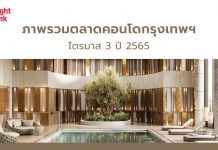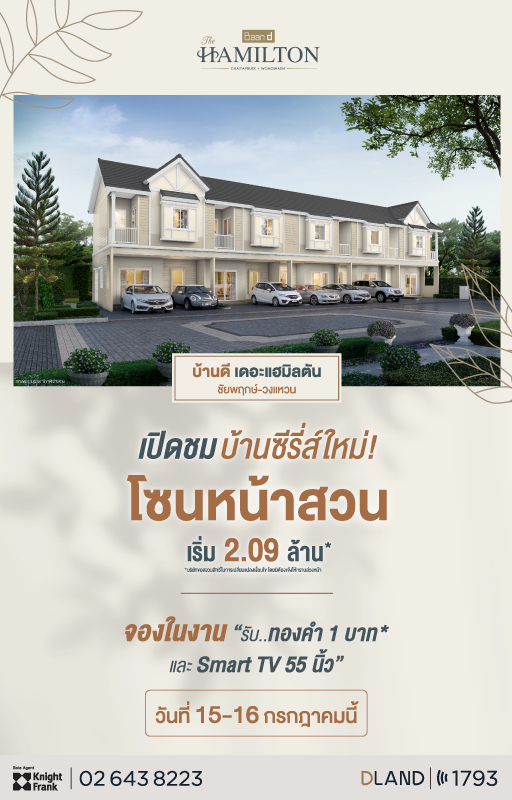The Central Business District, or CBD, commonly refers to the urban area with the most commercial activity in terms of office buildings, retail centres and hotels. Bangkok is considered to be the area lying within Sathorn, Silom, Ploenchit, Wireless, Rama I, Lumpini, Rajdamri and Sukhumvit. The latter has seen vigorous activity in the last twenty years. “This century, we do not expect that the city centre will move as the mass transit systems have anchored the city centre to a fixed location; however the centre will expand along the mass transit lines as it is doing now in Ratchadapisek,” Miss Risinee Sarikaputra, Director, Head of Research and Consultancy, Knight Frank Chartered (Thailand) Co., Ltd., explained. “The new sub-centres will emerge in areas where the mass transit will serve, expanding and diversifying Bangkok.”
The MRT underground train system was completed in 2004, and this route supported the city expansion to the Ratchadapisek area. With new project developments at the Ratchadapisek-Rama 9 intersection, the area is the most talked-about as the new emerging commercial area with the strong potential to become an extension of the existing CBD in the future. The development of high-quality office buildings, such as G Land Tower; The Super Tower, which is planned to be 615 metres tall; the new Stock Exchange of Thailand’s Headquarters; and the AIA Capital Centre, has increased demand from both local and international companies to relocate their offices to Ratchadapisek-Rama 9. Unilever PLC already relocated to the area this year. In addition to the quality office supply, supporting amenities in the area afford easily accessible to the CBD as well as the road linking northern and eastern Bangkok corridors. Moreover, rental rates are very competitive.
Miss Risinee added, “In the past two years, we have also seen Bangna emerge as a new sub-centre, accessed via the Bangkok Rapid Transit System (BTS) at Udomsuk Station. The area connects to the Eastern Seaboard via the Bangna Expressway, which was completed in 2000, and the Southern Bangkok corridor via the Motorway, which was completed in 2007. The location has attracted developers to pursue projects in the area such as Bhiraj Tower at Bitec, which is estimated to complete in 2016; and SJ Infinite 2, developed by WHA Corporation PLC on Bangna KM8. The Mall Group has also announced a mega project in this area called Bangkok Mall, situated on a plot of some 100 rai. The development includes businesses, residential space, offices, and a theme park and water park. The area has caught the eye of companies engaged in and related to airport operations and logistics, as well as companies whose factories are located in the Eastern Seaboard.”
Additionally, the relocation of Bangkok’s main train station from Hua Lumphong to Bangsue Grand Station has influence on the area around Bangsue. Located on 1,176 rai of land, the Grand Station will serve as Bangkok’s main transport hub, connecting provincial bus lines, rail links and the city’s subway stations. There will be around four rail routes that will be connected to Bangsue Station, linking the northern, southern, eastern and western parts of Bangkok. The area will also link to many commercial areas such as Energy Complex, Central Ladprao and Chatuchak Weekend Market. There are many condominium developments in this area as it is conveniently served by various routes, with good connectivity to many parts of Bangkok. Miss Risinee said, “Bangsue is attractive, evident in the residential and commercial developments mushrooming in the area. The area also holds much potential for many condominium buyers and investors.”
Bangkok’s city centre itself will expand along the edge of the downtown areas. “People are willing to live in any part of the city if the mass transit systems cover all areas. We believe that Bangkok’s city centre will not move, but it will decentralize to convenient locations, supported by mass transit systems, quality commercial and residential projects, and the availability of facilities and amenities in the areas,” Miss Risinee concluded.













